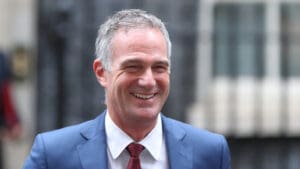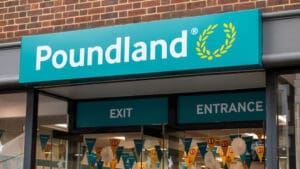The UK government will slash green levies on thousands of businesses in a major bid to reduce energy costs and revive the country’s manufacturing base, marking a key pillar of its long-awaited 10-year industrial strategy.
Announced on Monday by Prime Minister Keir Starmer, the policy aims to support more than 7,000 businesses by removing levies such as the renewables obligation, which helps fund historic renewable energy projects. The move is designed to ease financial pressure on manufacturers facing some of the highest electricity prices in the developed world, and to signal a more strategic, long-term approach to economic growth.
Starmer hailed the strategy as a “turning point for Britain’s economy,” promising a clear departure from what he called the “short-termism and sticking plasters of the past”.
“In an era of global economic instability, it delivers the long-term certainty and direction British businesses need to invest, innovate and create good jobs that put more money in people’s pockets as part of the plan for change,” he said.
A second measure, targeting the most electricity-intensive industries such as steel, aluminium, ceramics, and glass, will increase the discount on grid connection charges to 90%, up from the current 60%. The government estimates that around 500 firms across multiple sectors could benefit.
While industry sources welcomed the support, some voiced caution. In the steel sector, the overall annual savings are expected to be around £15 million, a modest figure given the scale of financial strain facing producers. Nonetheless, the policy is seen as a step in the right direction toward levelling the playing field with competitors in Germany and France, where electricity prices are significantly lower.
The government also pledged to accelerate grid connections for major investment projects that generate large numbers of jobs. A new fast-track system is expected to be in place before the end of the year, addressing a long-standing bottleneck for large-scale industrial and tech developments.
Chancellor Rachel Reeves said the industrial strategy would work in tandem with the recent spending review, which prioritised public investment in infrastructure and innovation.
“It’ll see billions of pounds for investment and cutting-edge tech, ease energy costs and upskill the nation,” she said. “It will ensure the industries that make Britain great can thrive.”
Importantly, the green levy cuts will not be funded by taxpayers or lead to higher household energy bills. The government said the changes would be funded through reforms to the wider energy system, although details of those reforms remain to be finalised.
Key to the energy and industrial strategy is the proposed linking of the UK’s Emissions Trading Scheme with that of the EU, a step that could align carbon pricing and enhance cross-border investment. Negotiations on the UK’s participation in the EU’s carbon market are ongoing following an announcement at a joint UK-EU summit in May.
The full strategy identifies eight high-potential growth sectors:
• Advanced manufacturing
• Clean energy
• Creative industries
• Defence
• Digital
• Financial services
• Life sciences
• Professional services
Business groups welcomed the plan, with Rain Newton-Smith, chief executive of the Confederation of British Industry, calling it a foundation for future growth.
“Competitive energy prices, fast-tracked planning decisions and backing innovation will provide a bedrock for growth,” she said. “But the global race to attract investment will require a laser-like and unwavering focus on the UK’s overall competitiveness.”
Stephen Phipson, chief executive of Make UK, the manufacturers’ organisation, described the announcement as a “giant and much-needed step forward”.
“The strategy sets out plans to address all three of the sector’s key frustrations — the skills crisis, crippling energy costs, and difficulty accessing capital,” he said. “Clearly there is much to do as we move towards implementation, but this will send a message across the country and around the world that Britain is back in business.”
While the impact of the measures will take time to be fully realised, the government hopes the strategy will restore confidence in UK industry, attract long-term investment, and create good-quality jobs in traditional Labour strongholds — with a clear eye on both economic revival and political renewal.
Read more:
UK to cut green levies on businesses as part of 10-year industrial strategy











